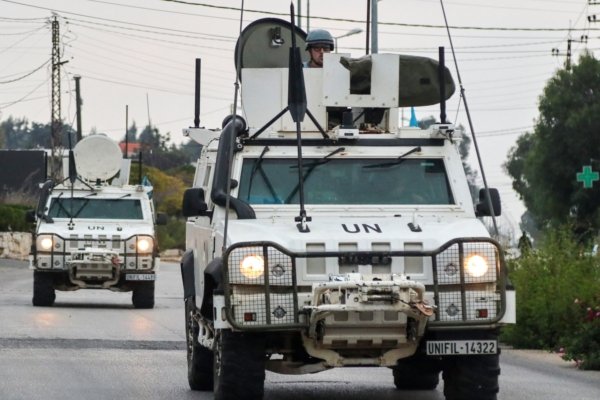Israel Defense Forces confirmed on Wednesday (December 11) that they have started to withdraw from the town of Khiam in southern Lebanon in accordance with the ceasefire agreement reached with Hezbollah.
CENTCOM Commander, Erik Kurilla, stated in a release that he visited the ceasefire monitoring headquarters in Beirut to personally oversee the withdrawal operation.
The Central Command noted that the Israeli troops have pulled out the first batch of forces from Khiam, allowing the Lebanese army to take over the area.
Kurilla said, “This is a crucial first step in implementing a lasting cessation of hostilities and lays the foundation for further progress.”
The Israeli military mentioned that they are still deployed in other areas in southern Lebanon and will continue operations to counter any threats.
The Lebanese army issued a warning advising civilians to stay away temporarily from the area as forces are clearing unexploded ordnances.
As per the ceasefire agreement, the Israeli Defense Forces must withdraw from all southern Lebanese areas by the end of January. The ceasefire came into effect on November 27, and both sides have accused each other of repeatedly violating the agreement. According to the terms of the agreement, Israeli troops are to withdraw within 60 days, to be replaced by Lebanese forces and UN peacekeepers in the region.
Hezbollah must move its forces to areas north of the Litani River, approximately 30 kilometers (20 miles) from the border, and dismantle its military infrastructure in the south.
Lebanon’s state-run news agency reported that earlier on Wednesday, UN peacekeepers entered Khiam to “inspect roads and verify the Israeli military’s withdrawal.”
The agency also mentioned that envoys from the United States, France, Saudi Arabia, Qatar, and Egypt held talks with Nabih Berri, the Speaker of the Lebanese Parliament, on Wednesday.
Berri plans to hold a parliamentary session in January next year to elect a new president. The crisis-ridden country has been without a head of state for over two years due to the ongoing disputes between pro-Hezbollah and anti-Hezbollah factions in the parliament.
For months, envoys from these five countries have been working to advance this process.

